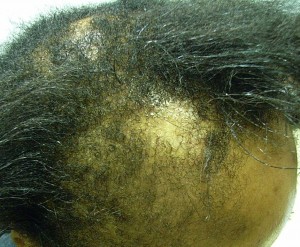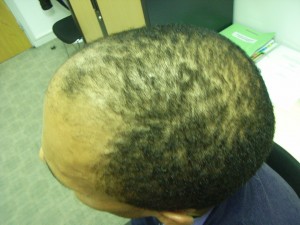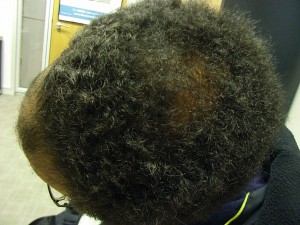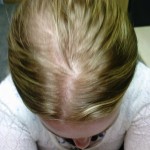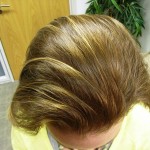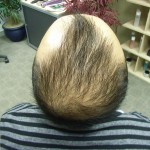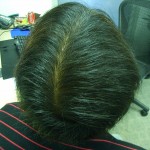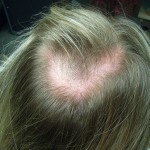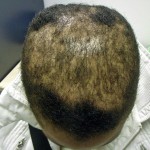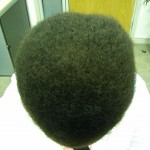04.03.2011
in HAIR LOSS HEALTH NEWS
Men who start balding at 20 may be at a greater risk of developing prostate cancer than their non-balding brethren, according to a study published in the Annals of Oncology.
Comparing nearly 700 men in their late 60s, with and without prostate cancer, the study states that those with the disease were twice as likely to have started balding in their 20s. However, early hair loss is not associated with early onset of cancer or a more aggressive tumor.
Men whose hair begins to thin in their 30s and 40s don’t face the similar risk.
Prostate screening
The study authors are not sure if prostate screening helps men with or without hair loss.
The study author, Dr. Philippe Giraud, from the European Georges Pompidou Hospital in Paris, noted, “At present, there is no hard evidence to show any benefit from screening the general population for prostate cancer.”
He says there needs to be a way of identifying men who are at high risk of developing prostate cancer.
Link between hair loss and prostate cancer
Baldness affects at least half of men and is very common.
Although the link between hair loss and prostate cancer has been reported for the first time, an earlier research has associated baldness with higher levels of androgenic hormones — like testosterone — which fuel the growth of prostate cancer.
The drug finasteride stops the conversion of testosterone to an androgen, which causes hair loss, and so is used to treat baldness. The study notes finasteride also contributed to lower incidence of prostate cancer.
The study
In order to explore the possible connection between balding and prostate cancer, the team recruited men with and without prostate cancer.
First group comprised 388 men who were diagnosed with prostate cancer between the ages of 46 and 84. The team spent more than two years analyzing the progress of the disease and the patterns of hair loss. The investigators gleaned from the men such details as any previous balding experience, when their hair loss started, and more importantly, what type of hair loss occurred at 20, 30, and 40.
The second group of 281 healthy men was recruited for comparison.
In the comparative study, the team found some startling results: 37 of the prostate cancer patients had some kind of hair loss at the age of 20, while only 14 of the healthy men experienced the same. The hair loss ranged from a receding hair line to a bald spot at the top of the head, or a combination of both.
The study authors conclude that any form of hair loss at 20 is linked to a doubling of prostate cancer risk.
The researchers still expressed caution about the link between prostate cancer and baldness.
Word of caution
Although the study is food for thought, it is not conclusive.
Dr. Nelson Neal Stone, a clinical professor of urology and radiation oncology at Mount Sinai School of Medicine in New York City, said, “first of all, the number of patients involved is very low, which makes interpretation and application to the general population very risky.”
In addition to that, scientists know that genetic factors are involved in the prevalence of prostate cancer.
“So, you have two genetically related factors that there may be an association from, and each may be linked to early high male hormone levels. So it may be a hormonally related situation. But it’s very hard to prove,” Stone said.
Further investigations are required to prove the association.
Dr. Philippe Giraud, the study author, said, “Balding at the age of 20 may be one of these easily identifiable risk factors, and more work needs to be done now to confirm this.”
Do you have Hair Loss Problems, read our Hair Loss Help





